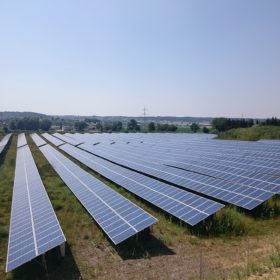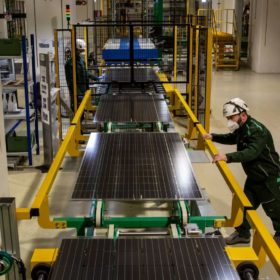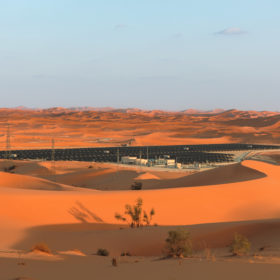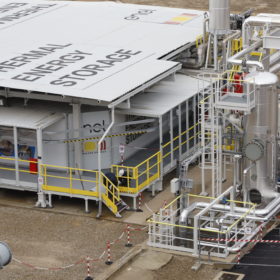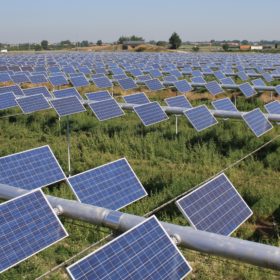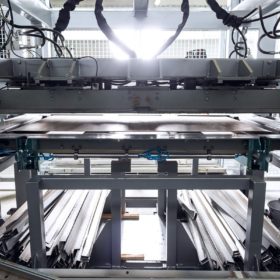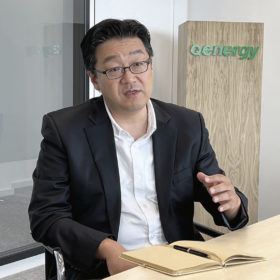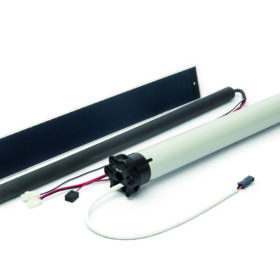Non-linear degradation curves affecting solar project profitability
Italian scientists have looked at how non-linear degradation curves could affect the profitability of large-scale solar projects. They found that full substitution of the modules after 10 years could be justified if the performance loss rate was higher than 1% per year.
Enel Green Power confirms plans to build 3 GW solar module factory in US
Enel, which already runs a solar factory on the Italian island of Sicily, said its new US plant with be its second global PV manufacturing facility.
Eni, Sonatrach start building 10 MW solar array in Algeria
Italy’s Eni and Algeria’s Sonatrach have started building a 10 MW solar project in Algeria. The oil giants also inaugurated a solar lab to test the efficiency of different PV technologies under local irradiation conditions.
Zucchetti unveils 5 kWh high-voltage battery for three-phase storage applications
Zucchetti’s new battery features a nominal capacity of 5.12 kWh and a nominal voltage of 400 V. It says it is suitable for C&I and residential PV systems.
Italy’s Key Energy positions agrivoltaics, utility storage as new market drivers
The latest edition of Key Energy, Italy’s top solar event, shows that the nation is once again poised for growth. It also shows that incentive schemes can turn agrivoltaics and large-scale storage into market drivers like rooftop and ground-mounted PV.
World’s first utility-scale, rock-based storage facility goes online in Italy
Enel is testing a 24 MWh thermal energy storage system that could be used for seasonal renewables storage. The facility uses rocks that store excess energy as heat, then releases that heat to generate steam for electricity.
Sun-tracking mounting structure for agrivoltaics
Italy’s Rem Tec has developed a rotating mounting structure for agrivoltaics. It is reportedly ideal for flat surfaces with a maximum slope of 3%, and is designed to produce a dynamic, controlled shadow on the ground.
New industrial plant concept for end-of-life PV panel recycling
Italian startup Tialpi is developing a process to recycle end-of-life solar panels that promises to recover 100% of a PV module’s weight. The new plant design is currently being tested at the company’s facility in the Italian northern province of Biella.
Renewable Solutions
South Korean industrial giant Hanwha launched its new Q Energy business over the summer, and is moving forward with an ambitious strategy of energy projects across the European continent. pv magazine caught up with Sang Chull Chung, CEO of Q Energy Group, for a look at its plans to accelerate deployment of renewables to alleviate Europe’s energy challenges.
New solar-powered tubular motor for blinds
Next Series technology, produced by Italian smart home specialist Nice, facilitates a 35% reduction in energy consumption, compared with analog motors. The company says the solar kit is sustainable and easy to install.
